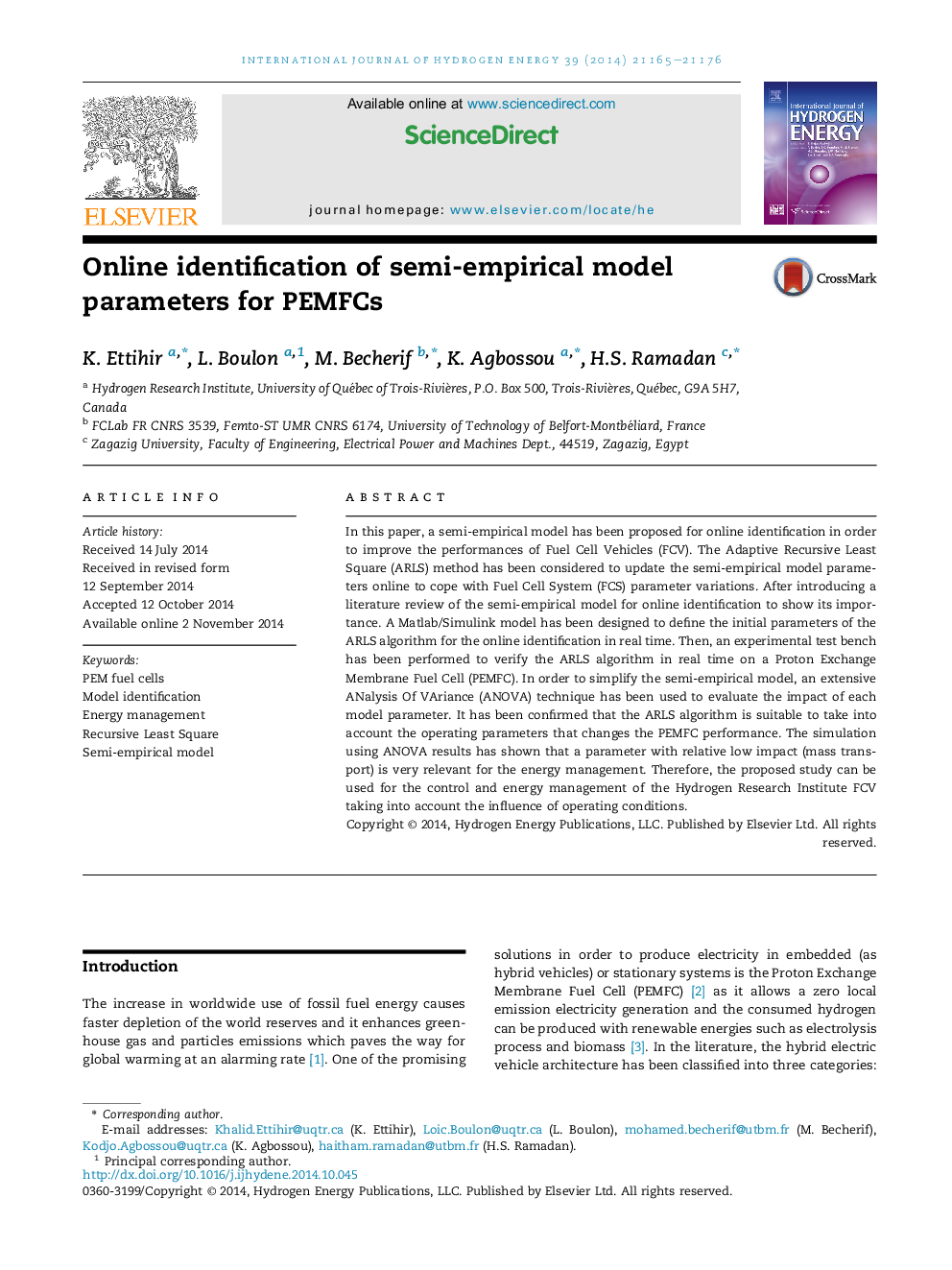| Article ID | Journal | Published Year | Pages | File Type |
|---|---|---|---|---|
| 7716818 | International Journal of Hydrogen Energy | 2014 | 12 Pages |
Abstract
In this paper, a semi-empirical model has been proposed for online identification in order to improve the performances of Fuel Cell Vehicles (FCV). The Adaptive Recursive Least Square (ARLS) method has been considered to update the semi-empirical model parameters online to cope with Fuel Cell System (FCS) parameter variations. After introducing a literature review of the semi-empirical model for online identification to show its importance. A Matlab/Simulink model has been designed to define the initial parameters of the ARLS algorithm for the online identification in real time. Then, an experimental test bench has been performed to verify the ARLS algorithm in real time on a Proton Exchange Membrane Fuel Cell (PEMFC). In order to simplify the semi-empirical model, an extensive ANalysis Of VAriance (ANOVA) technique has been used to evaluate the impact of each model parameter. It has been confirmed that the ARLS algorithm is suitable to take into account the operating parameters that changes the PEMFC performance. The simulation using ANOVA results has shown that a parameter with relative low impact (mass transport) is very relevant for the energy management. Therefore, the proposed study can be used for the control and energy management of the Hydrogen Research Institute FCV taking into account the influence of operating conditions.
Keywords
Related Topics
Physical Sciences and Engineering
Chemistry
Electrochemistry
Authors
K. Ettihir, L. Boulon, M. Becherif, K. Agbossou, H.S. Ramadan,
